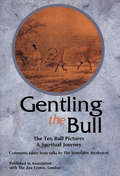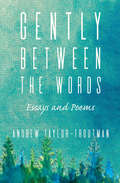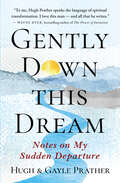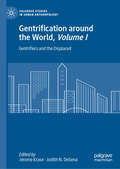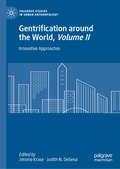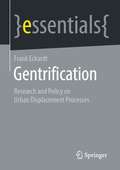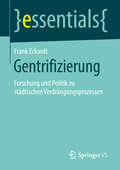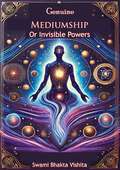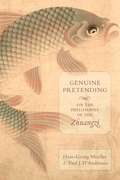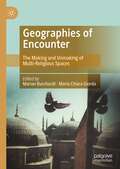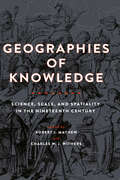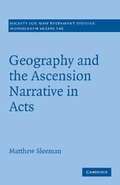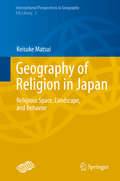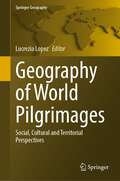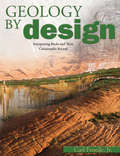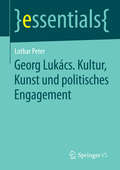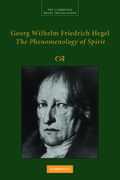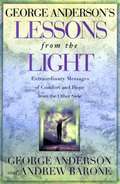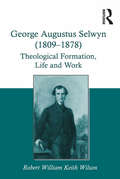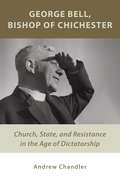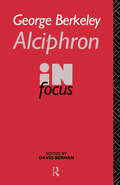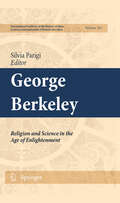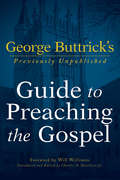- Table View
- List View
Gentling the Bull
by Irmgard SchloeglThe Venerable Myokyo-ni is one of today's most distinguished teachers in the Rinzai Zen tradition. In Gentling the Bull she offers an insightful explanation of the .Ten Ox-Herding Pictures, showing how they are a metaphor of both one's Zen training and spiritual journey.The Ten Ox-Herding Pictures, also known as the Ten Bull Pictures, are believed to have been drawn by Kakuan, a twelfth century Chinese Zen master, but became widely used as a means of Zen study in fifteenth-century Japan. They are used in formal Zen training to this day to show the stages of one's realization of enlightenment. Each of the ten pictures is presented here with a preface and general foreword to the series by Chi-Yuan, a monk in the direct line of Kakuan. Myokyo-ni provides a lucid introduction that sets the pictures in their historical context and shows their relevance to modern Zen training. In her own comments on each picture, she discusses how they are representative of our own search for "oneness"- spiritual fulfillment.
Gentling the Bull
by Irmgard SchloeglThe Venerable Myokyo-ni is one of today's most distinguished teachers in the Rinzai Zen tradition. In Gentling the Bull she offers an insightful explanation of the .Ten Ox-Herding Pictures, showing how they are a metaphor of both one's Zen training and spiritual journey.The Ten Ox-Herding Pictures, also known as the Ten Bull Pictures, are believed to have been drawn by Kakuan, a twelfth century Chinese Zen master, but became widely used as a means of Zen study in fifteenth-century Japan. They are used in formal Zen training to this day to show the stages of one's realization of enlightenment. Each of the ten pictures is presented here with a preface and general foreword to the series by Chi-Yuan, a monk in the direct line of Kakuan. Myokyo-ni provides a lucid introduction that sets the pictures in their historical context and shows their relevance to modern Zen training. In her own comments on each picture, she discusses how they are representative of our own search for "oneness"- spiritual fulfillment.
Gently Between the Words: Essays and Poems
by Andrew Taylor-TroutmanGently Between the Words guides and instructs our heartsIn his latest collection of essays and poems Taylor-Troutman guides readers through seemingly simple stories of death, life, parenting struggles, successes and failures that speak to larger questions we all face: How do we best spend our time? How can we raise our kids to be kind and confident? Who gives us guidance and wisdom? What does love look like in our lives on a day-to-day basis?In simple and important gestures like cleaning spilled milk with toilet paper, flipping the perfect pancake with your partner, and walking down the beach with your young child, readers find universal truths to guide their own lives regardless of personal circumstances.Gently Between the Words guides and instructs our hearts to keep the endangered language of beauty, love, forgiveness, grace, and sensitivity alive in order that we all might become more and more necessary to the urgency of our times and the dreams of our children. —Jaki Shelton Green, NC Poet Laureate
Gently Down This Dream: Notes on My Sudden Departure
by Hugh Prather Gayle PratherA beautiful final note from the pioneering author of the classic Notes to Myself Gently Down This Dream is a book for those who are tired of striving and suffering and want to awaken to the peace and love that are within us all. When bestselling author Hugh Prather completed this book in 2010, he gave it to his wife and writing partner, Gayle, to shape and edit. He died the next day. The book’s essays, poems, and aphorisms — bravely self-revelatory, relentlessly compassionate, and born out of a lifetime of contemplative practice and counseling work — make for a lovely, and loving, PS to his millions of fans and a winning introduction to his beautiful mind for new fans to come. They present the self-improvement practices that Hugh and Gayle learned in their long life together and later taught. The Prathers’ authentic humor, comfort, and spiritual insights are perfect for the divisive times we live in, offering a way through what can often seem the prison of the self, a reliable means for navigating a world that sometimes feels out of control, and a path to love.
Gentrification around the World, Volume I: Gentrifiers and the Displaced (Palgrave Studies in Urban Anthropology)
by Jerome Krase Judith N. DeSenaBringing together scholarly but readable essays on the process of gentrification, this two-volume collection addresses the broad question: In what ways does gentrification affect cities, neighborhoods, and the everyday experiences of ordinary people? In this first volume of Gentrification around the World, contributors from various academic disciplines provide individual case studies on gentrification and displacement from around the globe: chapters cover the United States of America, Spain, Brazil, Sweden, Japan, Korea, Morocco, Great Britain, Canada, France, Finland, Peru, India, Indonesia, Pakistan, Syria, and Iceland. The qualitative methodologies used in each chapter—which emphasize ethnographic, participatory, and visual approaches that interrogate the representation of gentrification in the arts, film, and other mass media—are themselves a unique and pioneering way of studying gentrification and its consequences worldwide.
Gentrification around the World, Volume II: Innovative Approaches (Palgrave Studies in Urban Anthropology)
by Jerome Krase Judith N. DeSenaBringing together scholarly but readable essays on the process of gentrification, this two-volume collection addresses the broad question: In what ways does gentrification affect cities, neighborhoods, and the everyday experiences of ordinary people? In this second volume of Gentrification around the World, contributors contemplate different ways of thinking about gentrification and displacement in the abstract and “on-the-ground.” Chapters examine, among other topics, social class, development, im/migration, housing, race relations, political economy, power dynamics, inequality, displacement, social segregation, homogenization, urban policy, planning, and design. The qualitative methodologies used in each chapter—which emphasize ethnographic, participatory, and visual approaches that interrogate the representation of gentrification in the arts, film, and other mass media—are themselves a unique and pioneering way of studying gentrification and its consequences worldwide.
Gentrification: Research and Policy on Urban Displacement Processes (essentials)
by Frank EckardtThis essential presents the state of urban research on gentrification in a condensed form. This term, which has been used in the scientific community since the 1960s, has now also become established in the public debate. It describes how rising rents in the cities and the lack of affordable housing lead to poorer residents being driven out of their neighbourhoods. It becomes clear in what way gentrification is a general principle of urban development and thus poses a considerable challenge to the social mix of our cities. It also shows what political measures should be taken from the perspective of research in order to prevent gentrification.This Springer essential is a translation of the original German 1st edition essentials, Gentrifizierung by Frank Eckardt, published by Springer Fachmedien Wiesbaden GmbH, part of Springer Nature in 2018. The translation was done with the help of artificial intelligence (machine translation by the service DeepL.com). A subsequent human revision was done primarily in terms of content, so that the book will read stylistically differently from a conventional translation. Springer Nature works continuously to further the development of tools for the production of books and on the related technologies to support the authors.
Gentrifizierung: Forschung Und Politik Zu Städtischen Verdrängungsprozessen (Essentials)
by Frank EckardtDieses essential stellt in komprimierter Form den Stand der Stadtforschung zum Thema Gentrifizierung dar. Dieser in der Wissenschaft bereits seit den 1960iger-Jahren verwendete Begriff hat sich inzwischen auch in der öffentlichen Debatte eingebürgert. Er beschreibt, wie steigende Mieten in den Städten und der Mangel an bezahlbaren Wohnraum dazu führen, dass ärmere Bewohnerinnen und -bewohner aus ihren Vierteln verdrängt werden. Dabei wird deutlich, in welcher Weise es sich bei der Gentrifizierung um ein allgemeines Prinzip von Stadtentwicklung handelt und damit eine erhebliche Herausforderung der sozialen Mischung unserer Städte einhergeht. Es wird auch dargestellt, welche politischen Maßnahmen aus Sicht der Forschung ergriffen werden müssten, um Verdrängungen zu verhindern.
Genuine Mediumship Or Invisible Powers
by Swami Bhakta VishitaGenuine Mediumship Or Invisible Powers by Swami Bhakta Vishita is an enlightening and comprehensive guide to the world of mediumship and the exploration of unseen spiritual forces. Written by a master of the occult, this book serves as both a practical manual and a deep philosophical treatise on the nature of mediumistic abilities and the invisible powers that shape our existence.Swami Bhakta Vishita delves into the various types of mediumship, including clairvoyance, clairaudience, psychometry, and spirit communication, providing detailed explanations of how these abilities work and how they can be developed. He offers practical exercises and techniques to help readers cultivate their own mediumistic talents, whether they are beginners or experienced practitioners.Genuine Mediumship also explores the spiritual and ethical dimensions of mediumship, emphasizing the importance of purity of intent and the responsible use of these powers. Swami Bhakta Vishita discusses the role of the medium as a bridge between the physical and spiritual worlds, highlighting the profound impact that genuine mediumship can have on personal growth, healing, and understanding the mysteries of life and death.In addition to practical guidance, the book offers insights into the broader metaphysical principles that govern the interaction between the material and spiritual realms. Vishita’s teachings are rooted in ancient wisdom and esoteric knowledge, making this book a valuable resource for those interested in the deeper aspects of spirituality and the occult.Genuine Mediumship Or Invisible Powers is essential reading for anyone seeking to understand or develop their psychic abilities. Swami Bhakta Vishita’s clear, concise, and compassionate approach makes this book accessible to all who are drawn to the exploration of mediumship and the invisible forces that influence our lives.This timeless work continues to inspire and empower readers, offering a path to unlocking the latent spiritual abilities within us all and connecting with the higher realms of existence.
Genuine Pretending: On the Philosophy of the Zhuangzi
by Hans-Georg Moeller Paul J. D'AmbrosioGenuine Pretending is an innovative and comprehensive new reading of the Zhuangzi that highlights the critical and therapeutic functions of satire and humor. Hans-Georg Moeller and Paul J. D’Ambrosio show how this Daoist classic, contrary to contemporary philosophical readings, distances itself from the pursuit of authenticity and subverts the dominant Confucianism of its time through satirical allegories and ironical reflections.With humor and parody, the Zhuangzi exposes the Confucian demand to commit to socially constructed norms as pretense and hypocrisy. The Confucian pursuit of sincerity establishes exemplary models that one is supposed to emulate. In contrast, the Zhuangzi parodies such venerated representations of wisdom and deconstructs the very notion of sagehood. Instead, it urges a playful, skillful, and unattached engagement with socially mandated duties and obligations. The Zhuangzi expounds the Daoist art of what Moeller and D’Ambrosio call “genuine pretending”: the paradoxical skill of not only surviving but thriving by enacting social roles without being tricked into submitting to them or letting them define one’s identity. A provocative rereading of a Chinese philosophical classic, Genuine Pretending also suggests the value of a Daoist outlook today as a way of seeking existential sanity in an age of mass media’s paradoxical quest for originality.
Geographies of Encounter: The Making and Unmaking of Multi-Religious Spaces
by Marian Burchardt Maria Chiara GiordaThis edited collection explores forms of multi-religious cohabitation as well as the spatial arrangements that underpin and shape them through sixteen chapters that range across disciplines, historical periods, and global geographies. Focusing on interactions between different religious groups and traditions, the authors conceptualize three types of spatial arrangements and explore how they operate ad geographies of encounter; i.e., multi-religious places, multi-religious cities, and multi-religious landscapes. With perspectives from anthropologists, historians, sociologists, and geographers, the book demonstrates the multiple ways in which geographies of interreligious encounters and forms of multi-religious cohabitation have changed throughout history due to their embeddedness id different frameworks of political organization, shifting religious ideologies, and changing forms of human mobility.
Geographies of Knowledge: Science, Scale, and Spatiality in the Nineteenth Century (Medicine, Science, and Religion in Historical Context)
by Robert J. Mayhew; Charles W. J. WithersA path-breaking exploration of how space, place, and scale influenced the production and circulation of scientific knowledge in the nineteenth century.Over the past twenty years, scholars have increasingly questioned not just historical presumptions about the putative rise of modern science during the long nineteenth century but also the geographical contexts for and variability of science during the era. In Geographies of Knowledge, an internationally distinguished array of historians and geographers examine the spatialization of science in the period, tracing the ways in which scale and space are crucial to understanding the production, dissemination, and reception of scientific knowledge in the nineteenth century.Engaging with and extending the influential work of David Livingstone and others on science's spatial dimensions, the book touches on themes of empire, gender, religion, Darwinism, and much more. In exploring the practice of science across four continents, these essays illuminate the importance of geographical perspectives to the study of science and knowledge, and how these ideas made and contested locally could travel the globe.Dealing with everything from the local spaces of the Surrey countryside to the global negotiations that proposed a single prime meridian, from imperial knowledge creation and exploration in Burma, India, and Africa to studies of metropolitan scientific-cum-theological tussles in Belfast and in Confederate America, Geographies of Knowledge outlines an interdisciplinary agenda for the study of science as geographically situated sets of practices in the era of its modern disciplinary construction. More than that, it outlines new possibilities for all those interested in knowledge's spatial characteristics in other periods. Contributors: John A. Agnew, Vinita Damodaran, Diarmid A. Finnegan, Nuala C. Johnson, Dane Kennedy, Robert J. Mayhew, Mark Noll, Ronald L. Numbers, Nicolaas Rupke, Yvonne Sherratt, Charles W. J. Withers
Geography and the Ascension Narrative in Acts
by Matthew SleemanThe book of Acts contains a strong geographical component. Yet readings of Acts typically ignore or marginalise geography's contribution to the construction of the narrative's theology. In this book Matthew Sleeman argues that Jesus' ascension into heaven is foundational for establishing the 'spatiality' of Acts, showing that the narrative's understanding of place and space is shaped decisively by Christ's heavenly location. Drawing on recent advances in geographical theory, Sleeman offers a 'spatial' interpretation that expands our vision of how space and place inform the theological impulses of Acts. Presenting a complement to conventional 'temporal' readings of Acts, he sheds new light on the theology of the book, and suggests new ways of reading not only Acts but also other New Testament texts. Sleeman's work combines innovative biblical scholarship with accessible and informative geographical analysis, and is suitable for those with research and teaching interests in human geography or biblical studies.
Geography of Religion in Japan
by Keisuke MatsuiThis book discusses modern aspects of Japanese religion in terms of cultural geography. To understand the function of religion, it is essential to examine it in the context of local societies. One of the distinguishing characteristics of Japanese religion is its diversity; indeed, it is often remarked that "Japan is a museum of religions. " In this work, the author clarifies some geographical aspects of the complex situation of Japanese religion. Chapter 1 discusses the trend of geographical studies of religion in Japan, of which four types can be identified. Chapter 2 focuses on certain characteristics of Japanese religious traditions by discussing tree worship and the landscape of sacred places. Chapter 3 clarifies regional divisions in the catchment areas of Japanese Shintoism by analyzing the distribution of certain types of believers. The author discusses two case studies: the Kasama Inari Shrine and the Kanamura Shrine. Chapter 4 discusses some modern aspects of sacred places and tourism through two case studies. The first part of the chapter focuses on changes in the types of businesses at the Omotesando of the Naritasan Shinshoji-Monzenmachi, and the following sections examine the revitalization of the local community through the promotion of religious tourism.
Geography of World Pilgrimages: Social, Cultural and Territorial Perspectives (Springer Geography)
by Lucrezia LopezThis book points out how pilgrimage studies rely on interdisciplinary academic interests, being always more determined by anthropological, social, cultural and economic factors. The volume gathers interdisciplinary contributions revealing different approaches and academic interests when researching pilgrimage. Finally, the proposal introduces a comparative international breath to reflect upon such complex phenomenon that since Antiquity still impregnates the history of human being across the world. As pilgrimage studies are closely related to mobility issues, how the contemporary mobile world is altering and re-signifying pilgrimage dynamics and meanings will also be discussed in detail. The term “pilgrimage” evokes key concepts deriving from different fields, all of them collected in the final glossary.The primary audience of this work are academics and researchers from different fields involved in pilgrimage studies. The work may also be useful in teaching (advanced) university courses.
Geology By Design
by Carl Froede Jr.Presents and authoritative and biblical geological time-line for high school students and adults. Includes substantial illustrations, a glossary, and an extensive reference section. Clearly explains how data from volcanic deposits, seismic activity in Earth history, and even the presence of ripple marks in rock layers support the Bible as history. From the acclaimed Creation Research Society, this technical study of rock strata, and the fossils found therein, gives a solidly scientific rationale for believing in a young earth. This advanced guide is ideal for upper-level homeschool students, college students, or anyone wishing to explore this fascinating subject in-depth and includes questions for review at the end of each chapter. Froede presents a credible geological time-line and explains the formation and existence of fossil layers in rock sediments around the world.
Georg Lukács. Kultur, Kunst und politisches Engagement (essentials)
by Lothar PeterDer Verfasser gibt einen Überblick über Leben und Werk von Georg Lukács, einem bedeutenden Philosophen und Kulturtheoretiker des 20. Jahrhunderts. Im Mittelpunkt stehen die Expressionismus-Auffassung, die Theorie des literarischen Realismus und die große Ästhetik von Lukács. Berücksichtigt wird auch die Kritik namhafter Schriftsteller und Philosophen wie Bloch, Brecht, Seghers und Adorno an seinem Werk. Dabei spielen die Zusammenhänge zwischen marxistischem Denken, Kultur und politischen Engagement eine wesentliche Rolle.
Georg Wilhelm Friedrich Hegel: The Phenomenology of Spirit (Cambridge Hegel Translations)
by Michael Baur Georg Wilhelm Friedrich Hegel Terry PinkardHegel's Phenomenology of Spirit (1807) is one of the most influential texts in the history of modern philosophy. In it, Hegel proposed an arresting and novel picture of the relation of mind to world and of people to each other. Like Kant before him, Hegel offered up a systematic account of the nature of knowledge, the influence of society and history on claims to knowledge, and the social character of human agency itself. A bold new understanding of what, after Hegel, came to be called 'subjectivity' arose from this work, and it was instrumental in the formation of later philosophies, such as existentialism, Marxism, and American pragmatism, each of which reacted to Hegel's radical claims in different ways. This edition offers a new translation, an introduction, and glossaries to assist readers' understanding of this central text, and will be essential for scholars and students of Hegel.
George Anderson's Lessons from the Light: Extraordinary Messages of Comfort and Hope from the Other Side
by George Anderson Andrew BaroneThe author conducts meetings with people who have passed over into the light at the request of families and allows them to record and make transcripts of conversations. These are present in the book as well as information the author has gained about the "light."
George Augustus Selwyn (1809-1878): Theological Formation, Life and Work
by Robert William WilsonThe conventional portrayal of George Augustus Selwyn, the first Anglican bishop of New Zealand, focuses upon his significance as a missionary bishop who pioneered synodical government in New Zealand and acted as a mediator between settlers and Maori. George Augustus Selwyn (1809-1878) focuses on Selwyn’s theological formation, which places him in the context of the world of traditional high churchmanship, rather than the Oxford Movement narrowly conceived. It argues that his distinctiveness lay in the way in which he was able to transplant his vision of Anglicanism to the colonial context. Making use of Selwyn’s personal correspondence and papers, as well as his unpublished sermons, the book analyses his theological formation, his missionary policy, his role within the formation of the colonial episcopate, his attitude to conciliar authority and his impact upon the diocesan revival in England. The study places Selwyn alongside other likeminded high churchmen who shaped the framework for the transformation of Anglicanism from State Church to worldwide communion in the nineteenth century.
George Bell, Bishop of Chichester: Church, State, and Resistance in the Age of Dictatorship (The\selected Letters And Papers Of George Bell, Bishop Of Chichester Ser.)
by Andrew ChandlerThe story of a significant British church leader who fought for justice and freedom during World War IIIt was to George Bell, an English bishop, that Dietrich Bonhoeffer sent his last words before he was executed at the Flossenbürg concentration camp in April 1945. Why he did so becomes clear from Andrew Chandler's new biography of George Kennedy Allen Bell (1883–1958).As he traces the arc of Bell's life, Chandler reshapes our perspective on Bonhoeffer's life and times. In addition to serving as bishop of Chichester, Bell was an internationalist and ecumenical leader, one of the great Christian humanists of the twentieth century, a tenacious critic of the obliteration bombing of enemy cities during World War II, and a key ally of those who struggled for years to resist Hitler in Germany itself.This inspiring biography raises important questions that still haunt the moral imagination today: When should the word of protest be spoken? When should nations go to war, and how should they fight? What are our obligations to the victims of dictators and international conflict?
George Bell, Bishop of Chichester: Church, State, and Resistance in the Age of Dictatorship (The\selected Letters And Papers Of George Bell, Bishop Of Chichester Ser.)
by Andrew ChandlerThe story of a significant British church leader who fought for justice and freedom during World War IIIt was to George Bell, an English bishop, that Dietrich Bonhoeffer sent his last words before he was executed at the Flossenbürg concentration camp in April 1945. Why he did so becomes clear from Andrew Chandler's new biography of George Kennedy Allen Bell (1883–1958).As he traces the arc of Bell's life, Chandler reshapes our perspective on Bonhoeffer's life and times. In addition to serving as bishop of Chichester, Bell was an internationalist and ecumenical leader, one of the great Christian humanists of the twentieth century, a tenacious critic of the obliteration bombing of enemy cities during World War II, and a key ally of those who struggled for years to resist Hitler in Germany itself.This inspiring biography raises important questions that still haunt the moral imagination today: When should the word of protest be spoken? When should nations go to war, and how should they fight? What are our obligations to the victims of dictators and international conflict?
George Berkeley Alciphron in Focus (Philosophers in Focus)
by David BermanAlciphron, or the Minute Philosopher (1732) is Berkeley's main work of philosophical theology and a crucial source of his views on meaning and language. This edition contains the four most important dialogues and a selection of critical essays and commentaries reflecting the response of such writers as Hutcheson, Mill and Antony Flew. The only single edition currently in print, it argues that Alciphron has a more important place both in the Berkeley canon and in early modern philosophy than is generally thought.
George Berkeley: Religion and Science in the Age of Enlightenment
by Silvia ParigiGeorge Berkeley was considered "the most engaging and useful man in Ireland in the eighteenth century". This hyperbolic statement refers both to Berkeley's life and thought; in fact, he always considered himself a pioneer called to think and do new things. He was an empiricist well versed in the sciences, an amateur of the mechanical arts, as well as a metaphysician; he was the author of many completely different discoveries, as well as a very active Christian, a zealous bishop and the apostle of the Bermuda project. The essays collected in this volume, written by some leading scholars, aim to reconstruct the complexity of Berkeley's figure, without selecting "major" works, nor searching for "coherence" at any cost. They will focus on different aspects of Berkeley's thought, showing their intersections; they will explore the important contributions he gave to various scientific disciplines, as well as to the eighteenth-century philosophical and theological debate. They will highlight the wide influence that his presently most neglected or puzzling books had at the time; they will refuse any anachronistical trial of Berkeley's thought, judged from a contemporary point of view.
George Buttrick's Guide to Preaching the Gospel
by George A. Buttrick Charles N. Davidson JR,"Does the preacher now impress us as a ‘legate of the skies’? To many he is a pathetic figure, an anachronism, a stage-joke—an inoffensive little person jostled by the crowd, and wearing the expression of a startled rabbit. With one hand he holds a circular hat on a bewildered head and with the other desperately clutches an umbrella. The crowd pushes him from the sidewalk; the traffic shoots him back into the crowd. Some curse him; a few laugh; most are unaware of his existence." (George Buttrick, Lyman Beecher Lectures, 1931).Whether we need preaching has been asked for hundreds of years, long before an age of media saturation from streaming 24-hour news, entertainment, politics, and sports. This question hounded George Buttrick, one of the most profound preachers of the twentieth century and often compared with Billy Graham. Buttrick offers a compelling answer to the question, but his answer remained hidden for 40 years until now.In George Buttrick’s Guide to Preaching the Gospel, we learn why the world needs competent preachers, what the preacher must preach about, and how the preacher goes about creating the sermon with daily discipline and several practiced skills, including research, charting, outlining, writing, and performance. These writings have never been published before and were found by his grandchildren after his death. A brief biography of Buttrick introduces this master orator and professor to readers who do not know his work.
